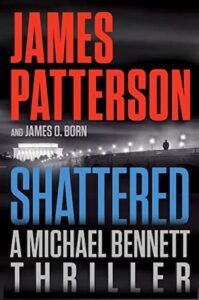Nothing could tear Detective Michael Bennett away from his new bride—except the murder of his best friend. NYPD master homicide investigator Michael Bennett and FBI abduction specialist Emily Parker have a history. When she fails to show at FBI headquarters in Washington, DC, Bennett ventures outside his jurisdiction. The investigation he undertakes is the most brilliant detective work of his career…and the most intensely personal. A portrait begins to emerge of a woman as adept at keeping secrets as forging powerful connections. A woman whose enemies had the means and the motives to silence her —and her protectors. In reality, most often the three sub-genres all converge, sometimes in a single novel, and sometimes in a series. Sherlock Homes is not in danger in A Study in Scarlet, but as one continues through his story, told from the single perspective of Dr. John Watson, the danger to Holmes becomes clear with the introduction of his arch nemesis, Moriarty. Similarly, Dexter Morgan’s real drama begins when he encounters a killer who is patterning themselves after his work in order to get close to him; his work as a “detective” character is all prior to his story. And of course, there is no official definition of any of these, just as there is no true definition of any fiction genre. We come to a genre with an expectation: mysteries will be solved eventually, romances will move tantalizingly toward a realization of love, etc. And while those expectations are entirely justified, readers tend to make a book popular when it subverts its genre a little bit. One of the subversions we are seeing is in the cozy mystery sub-genre, where the crimes happen off screen and there is a tradition of no swearing and no sex. Readers are expressing more interest in cozies that, while still following a comfortable formula, allow for more adult themes. When it comes to defining whether a book is a mystery, thriller, or a suspense, the real question is: what will readers gravitate toward? And the answer seems to be that books labeled “thriller” or “thrilling” tend to do better than books labeled as “mystery” or “suspense.” So while it’s helpful to know the categories, in the end, it’s up to you as the reader to read liberally across genres and tropes, then decide what you like best.
